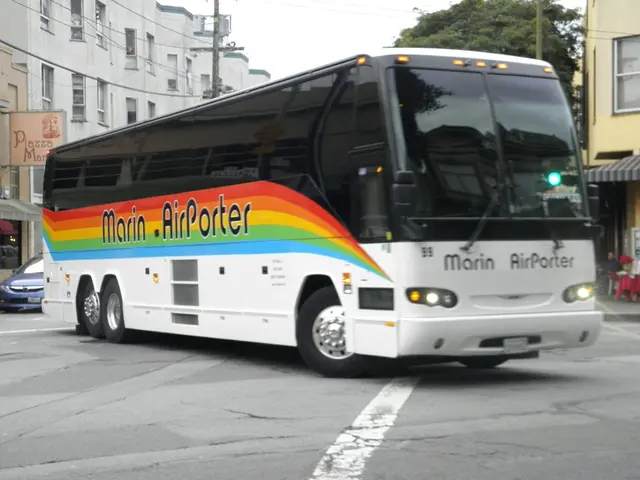EU Regulatory Review for Uniformity in Ride-Sharing Policies
The European Commission is set to review regulations governing ride-hailing services such as Uber, Bolt, Cabify, and Heetch this year, as part of its Single Market Strategy announced this week. According to a senior official, this review aims to harmonize rules across EU member states, which currently govern app-based taxi services through a patchwork of different regulations.
These regulations cover various aspects such as licensing, waiting times, vehicle size, and parking. Recent years have seen tension between traditional taxi drivers and ride-share drivers in several capitals, fueled by allegations of unfair competition.
During the presentation of the Shared Mobility Europe coalition – a group consisting of European ride-hailing firms, driver organizations, and mobility platforms – Petra Söderqvist, a member of the cabinet of Tourism Commissioner Apostolos Tzitzikostas, welcomed the inclusion of ride-sharing in the Single Market Strategy. She noted that the Commission intends to work towards harmonizing these rules, with a political discussion on the matter expected in the Commission this year.
Representatives from ride-share companies expressed concerns during the coalition's launch, citing stark regulatory differences across the EU. For instance, in Italy, drivers must wait 20 minutes after a booking is made before picking up fares, while there are fewer licenses available in the country than in Paris alone. In parts of Spain, vehicles must be at least 4.9 meters long.
Back in 2022, the Commission issued a notice on Transport-on-Demand, acknowledging the value of ride-hailing in decarbonizing transport and enhancing mobility. However, Eduardo Martínez Gómez de Villalba, President of MOVEA – an NGO representing the interests of VTC (chauffeur-driven vehicle) drivers – expressed his urge for the Commission to propose binding regulations to address ongoing challenges.
Söderqvist warned against expecting "any grand actions," given the issue's sensitivities over legal competence and the subsidiarity principle.
The European Commission's Single Market Strategy could lead to several improvements for ride-hailing services if implemented. These include simplifying regulations by reducing administrative burdens, harmonizing rules for data protection, consumer rights, and operational standards, and conducting a competitiveness check to ensure a fair playing field. Additionally, improved oversight could result in more consistent enforcement of regulations, reducing regulatory uncertainty and compliance challenges.
The European Commission's Single Market Strategy, if implemented, could simplify regulations for ride-hailing services by reducing administrative burdens, as well as harmonize rules for data protection, consumer rights, and operational standards across various EU member states. This strategy could also result in a competitiveness check to ensure a fair playing field in the finance sector, addressing stark regulatory differences among ride-share companies in industries like transportation.








